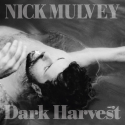In an ideal world, we would want the flashbulbs of fame that have been focused on Diana Ross for virtually her entire life to reveal a figure who is not just regal but also ageless. We would want her to be able to connect with us emotionally through the strength and character of her singing, just as she could fifty or more years ago.
We would want her songs – this is her first album of new songs for two decades – to be full of class and sass, for the people around her to support this never-fading dream. Ross and her team would reassure us that this world can be made a better place through the dignity, positivity and essential goodness of the human spirit.
And the miracle of her new album Thank You (Decca) is that she and the teams of musicians, co-writers and producers who have worked with her on it are able to deliver all of the above. Except, that is, when they don’t.
At its best there is a compelling sense of flow and pacing in some tracks that absolutely draws the listener in. The ballad “Just in Case” is remarkable. There is a totally convincing honesty and authenticity in the declaration of unconditional love, interspersed with glorious trumpet soloing from Keyon Harrold. Another song, “I Still Believe” gives us a wonderful broadening-out: the opening is intimate with just a piano for company, then into a disco four-on-the-floor, and then onwards and outwards to be surrounded by an entire street full of Puerto Rican percussion and searing brass. The lead single and title track “Thank You” has a real verve to it. This one is a very fineTroy Miller creation from top to bottom; he has no fewer than twelve credits: nine instruments (sic!) plus composing, writing and production.
Yet there are moments when the mask slips, and one wonders how some tracks ever got through the editing and production processes. All is definitely and increasingly not well towards the vocally strained ending of “All is Well”, where frailty, hesitancy and sapped energy affect the upper register of Ross’s voice. (The video teaser below is the opening)
There are points in both “A Time to Call” and “In Your Heart” where that vocal problem has been addressed by recessing the voice in the texture, and by what sounds suspiciously and creepily like Autotune. And “If the World Just Danced” may find an appreciative audience – among fans of wholly synthetic Bieber-sounds.
The best bits of “Thank You” are gratifyingly worth hearing. To feel gratitude for the album as a whole is a much harder ask.
- Video Teaser: "All is Well"
- Thank You is released on 5 November 2021
- Read more new music reviews at theartsdesk













Add comment